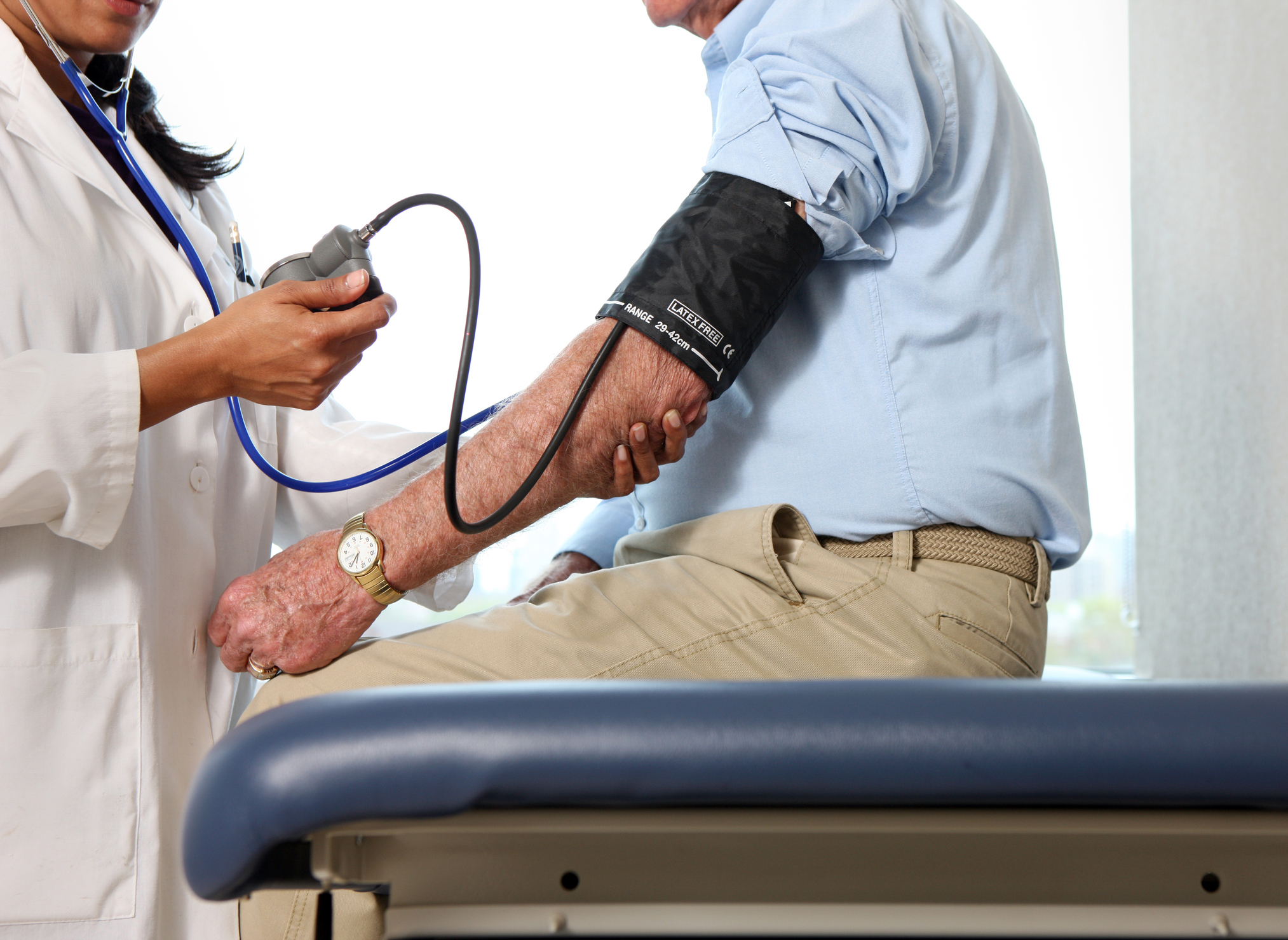

Most of us are aware that having high blood pressure places you at increased risks for serious health conditions such as having a heart attack, stroke or kidney damage. But just as too high of a blood pressure is a cause for concern, sometimes too low of a blood pressure can be as well.
“Blood pressure is an essential part of your body’s normal physiology,” says heart rhythm specialist Jeffery Courson, MD. Blood pressure reflects your ability to send oxygen rich blood to your vital organs and especially your brain, he says.
Blood pressure is a simple measure of overall health that can be routinely performed at a doctors visit or at home. Home blood pressure monitors are widely available, inexpensive and relatively easy to use. If you have too high or too low blood pressure, you should monitor it routinely in accordance with our doctor, says
A normal blood pressure is 120/80mmHg. The top number is the systolic pressure and represents a measure of pressure in your arteries when your heart is contracting. The bottom number is the diastolic and represents pressure in your arteries when your heart is relaxing.
When blood pressure is too low?
Whether blood pressure is too low has more to do with how you feel than the measured number. “A blood pressure of 90/60 mmHG may be normal for someone young and healthy, but may cause symptoms of lightheadedness or weakness in an older patient or someone with other health conditions,” Dr. Courson says.
What causes low blood pressure?
Medications are one of the most common causes for low blood pressure. Dr. Courson advises that if you do have low blood pressure measurements, you should review your medications with your doctor.
Though there are many factors that can affect blood pressure, three of the most important are:
- Stroke volume, which is the amount of blood pumped from your heart with each contraction.
- Blood vessel tone, which can be affected by stiffness or blockages in the blood vessels.
- Heart rate.
Disruption of any of these factors can result in low blood pressure. For example, a patient with heart failure and a low stroke volume may be prone to low blood pressures. This sometimes occurs if too much fluid is removed with diuretics (water pills).
Some conditions such as infection or paralysis can affect the tone in the blood vessels and result in low blood pressure. Arrhythmias that cause too slow (bradycardia) or too fast (tachycardia) heart rates can result in low blood pressure.
It’s normal for blood pressure values to fluctuate and to go up and down. You need a higher blood pressure when exercising and a lower blood pressure when at rest as your oxygen requirements differ under these conditions. Your autonomic nervous system regulates our blood pressure.
“I think of this as our ‘automatic’ nervous system as we do not control this by thought,” says Dr. Courson. So, if you get upset or exercise, your blood pressure will rise. But you can’t “think” your blood pressure up or down, says Dr. Courson.
Some people have disorders that affect their autonomic nervous system that can result in difficulty regulating their blood pressure. This can result in low blood pressures upon standing or very labile blood pressure that fluctuate between high and low.
When to call the doctor
Low blood pressure can cause symptoms of lightheadedness or dizziness, weakness or feeling faint. If you have any of these symptoms associated with a low blood pressure, you should contact your doctor.
If you have a lower than normal blood pressure but you feel fine without symptoms you are probably okay, says Dr. Courson.
more recommended stories
 Pediatric Crohn’s Disease Microbial Signature Identified
Pediatric Crohn’s Disease Microbial Signature IdentifiedKey Points at a Glance NYU.
 High-Fat Diets Cause Damage to Metabolic Health
High-Fat Diets Cause Damage to Metabolic HealthKey Points Takeaways High-fat and ketogenic.
 Can Too Many Antioxidants Harm Future Offspring?
Can Too Many Antioxidants Harm Future Offspring?Key Takeaways High-dose antioxidant supplementation in.
 Human Antibody Drug Response Prediction Gets an Upgrade
Human Antibody Drug Response Prediction Gets an UpgradeKey Takeaways A new humanized antibody.
 Dietary Melatonin Linked to Depression Risk: New Study
Dietary Melatonin Linked to Depression Risk: New StudyKey Summary Cross-sectional analysis of 8,320.
 Type 2 Diabetes Risk Identified by Blood Metabolites
Type 2 Diabetes Risk Identified by Blood MetabolitesKey Takeaways (Quick Summary) Researchers identified.
 Microglia Neuroinflammation in Binge Drinking
Microglia Neuroinflammation in Binge DrinkingKey Takeaways (Quick Summary for HCPs).
 Durvalumab in Small Cell Lung Cancer: Survival vs Cost
Durvalumab in Small Cell Lung Cancer: Survival vs CostKey Points at a Glance Durvalumab.
 Rising Chagas Parasite Detected in Borderland Kissing Bugs
Rising Chagas Parasite Detected in Borderland Kissing BugsKey Takeaways (At a Glance) Infection.
 Can Ketogenic Diets Help PCOS? Meta-Analysis Insights
Can Ketogenic Diets Help PCOS? Meta-Analysis InsightsKey Takeaways (Quick Summary) A Clinical.

Leave a Comment